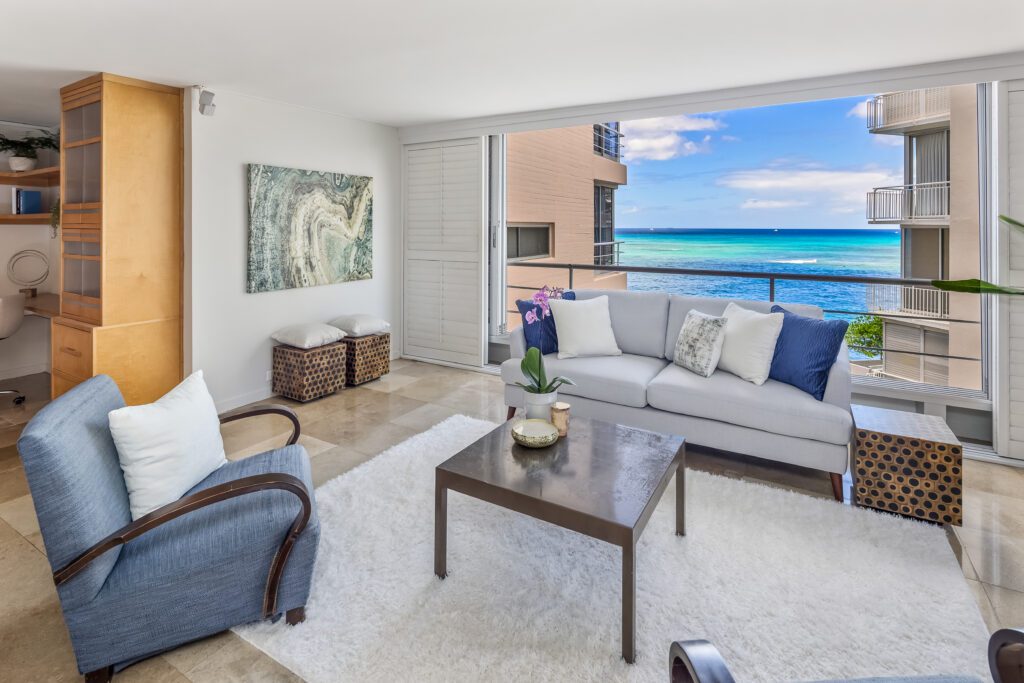
Property Management Insights
If you own investment property in Hawaii, one of the most important decisions you’ll make is whether to rent it out as a short-term vacation rental or a long-term residential lease. Each option offers distinct advantages and challenges, and the right choice depends on your financial goals, property location, and how involved you want to be in day-to-day operations.
At Caron B Realty International, we help property owners navigate these choices with clarity. Here’s a breakdown to help you determine the best fit for your property.
Short-Term Rentals: Flexibility and High Income Potential

Short-term rentals are ideal for vacationers and business travelers. If your property is in a resort zone or an area legally zoned for short-term stays, this could be a lucrative option.
Pros:
- Higher nightly rates: Especially during peak seasons, you can earn significantly more than with a long-term lease.
- Owner flexibility: Block off dates for personal use when needed.
- Tax deductions: Greater opportunity to deduct costs related to furnishing, amenities, and marketing.
Cons:
- More turnover and cleaning: Requires frequent maintenance, cleaning, and guest communication.
- Higher management demands: Guest support, calendar coordination, and hospitality services take time or require a property manager.
- Regulatory restrictions: Hawaii has strict zoning laws and permitting requirements. Legal short-term rental properties are limited.
Long-Term Rentals: Stability and Simplicity

Long-term rentals typically refer to leases of 6 months or more. These are best suited for tenants looking to settle in such as military families, local residents, or professionals relocating for work.
Pros:
- Consistent cash flow: Monthly rent provides steady income with less volatility.
- Lower operational costs: Fewer turnovers, cleaning fees, and less frequent repairs.
- Simpler management: One set of tenants over a longer period means fewer logistics.
Cons:
- Lower rental income potential: Monthly rates are lower than short-term nightly rates, especially in prime tourist areas.
- Less personal use: You won’t have access to your property for vacations or visits.
- Tenant risks: Long-term leases come with potential challenges, like late payments or damage, although professional tenant screening helps minimize this.
Key Questions to Ask Yourself
- Is your property legally zoned for short-term use? Visit our blog here to learn which condotels in Waikiki are allowed. You can also check the state’s map here.
- Do you want to use the property yourself part of the year?
- Are you prepared to manage frequent turnovers or hire a manager to do it?
- Is steady, predictable income more important than maximizing gross revenue?
Our Take: Know Your Goals—and Let Us Help
The decision between short- and long-term rentals isn’t just about profit, it’s about your lifestyle, your time, and your long-term investment strategy. At Caron B Realty International, we offer expert guidance and full-service property management for both types of rentals. Whether you’re looking to maximize vacation rental income or prefer the peace of mind that comes with a long-term tenant, we’ll help you make the most of your investment.
Not sure which is best for your property? Contact us today for a personalized rental income analysis. To learn more about our comprehensive property management services, click here or contact Doug at (808) 596-4883 or dougdavis@caronb.com. Visit our YouTube channel to watch our property management series, Ask Doug! in which Doug answers common property management questions.

